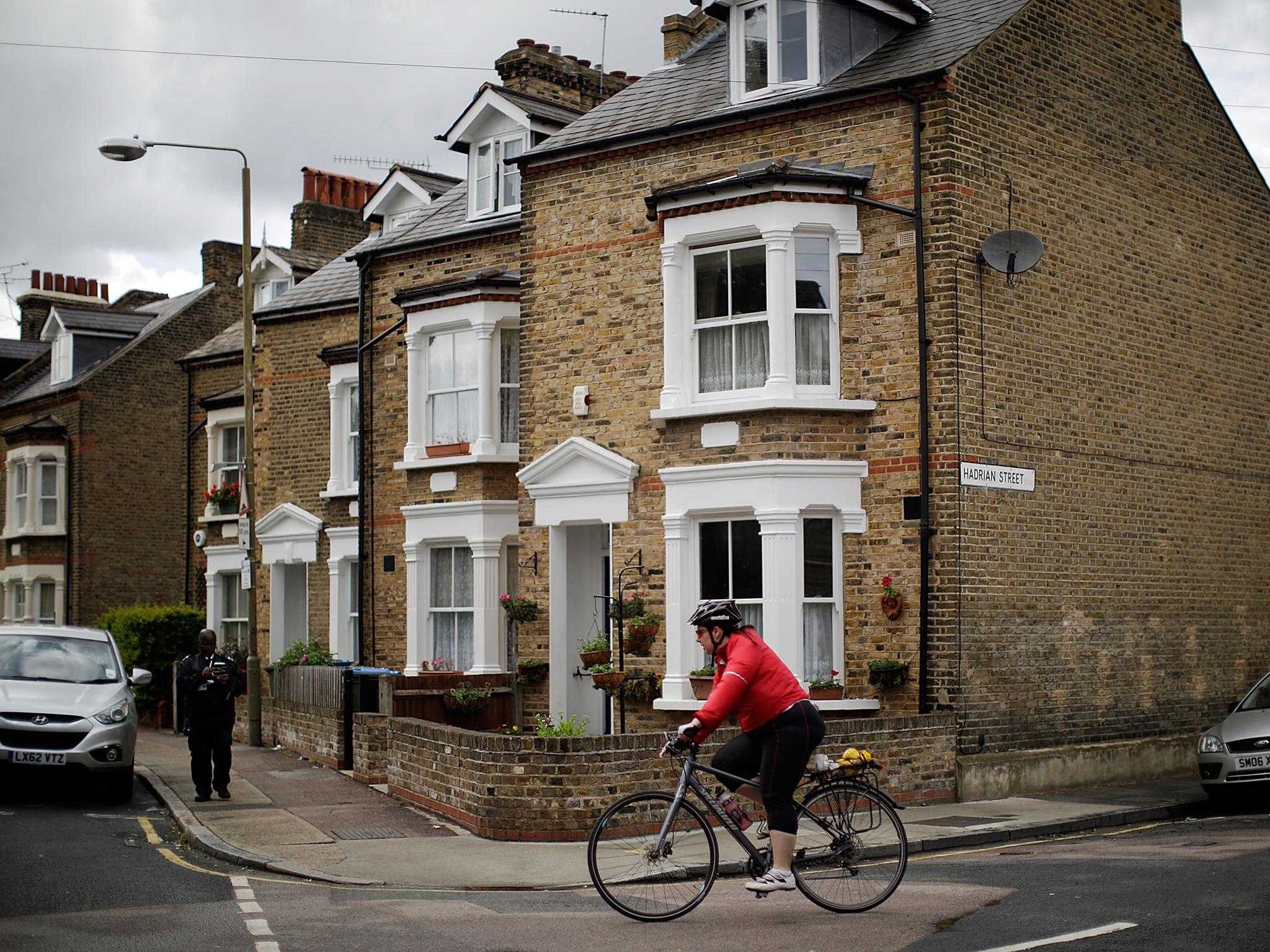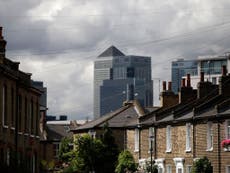Newsflash, young people: owning your own home isn't a human right – your sense of entitlement won't solve this crisis
In other countries, notably Germany, the fetish of home ownership is nowhere near as developed as it is in this country, and they hardly suffer as a result. And if you can’t afford to live in London, either renting or buying, then don’t


There has been a slightly hysterical reaction to the news that home ownership rates are slipping, and that the “crisis” in housing has reached such outer reaches of civilisation (I’m being ironic here) as Manchester and Leeds. Younger people, I read, are being “robbed” of their chance to own a house or a flat of their own. Goodness me, there is so much wrong with this that I will have to take it in stages. Join me, then, on a journey to real estate realism.
Owning your own home is a human right
Having a roof over your head, of some kind, may arguably be a human right, but the actual possession of deeds to a property is not. It never has been, in fact. Home ownership rates have, indeed, steadily risen over the decades, for a variety of reasons, good and bad, but there is no law of God, nature or economics that states that the trend has to continue until it reaches 100 per cent.
I hesitate to use the term “misplaced sense of entitlement” in this context, as I mentioned it the other day when discussing the “triple lock” on increases in the state pension, and suffered for it, but so much of the indignant coverage is saturated in that sense that the dread phrase comes unavoidably to mind. No one has a right to own their own home. There are plenty of alternatives. If renting or sharing are “unaffordable”, then you should adjust your lifestyle to match, meaning commuting or living in a cheaper part of the country.
It's not fair
This is actually true. It isn’t fair, in one sense, that my generation was able to buy a flat relatively cheaply – though it felt horrendously expensive at the time – and enjoy the benefits ever since of a gigantic housing boom, or bubble (though the market did sometimes collapse).
It is but one of many intergenerational unfairnesses, like free university education, and indeed general unfairnesses that life has to offer. But it is not one that the state or anyone else can do much about. Apart, that is, from the bank of Mum and Dad who could engineer a transfer of their unearned housing wealth to the next generation if they wished to do so (and many do indeed do this through gifts or soft loans for deposits).
That, I admit, adds to inequality in wealth, but I can’t see what can be reasonably done about that, beyond some reforms to the taxation of housing, outlined below. As a voluntary wealth tax it has something to commend it.
It's the only way younger people will be able to build wealth
This is a pernicious one, and true in part, but for the wrong reasons. Here goes. Investing in bricks and mortar has been a sure way of saving and making money as well as enjoying the benefits of home comforts for many decades. It has outstripped, though perhaps not as much as people think, many other types of investment. The magical thing is of course that it is also consumption – no one can enjoy hanging out with a share certificate or inviting friends to look round a pile of gold, say.
The other very special thing about residential property is that it is virtually tax-free, and here again we discover another bogus human right – the right to enjoy unearned capital gains on home ownership tax-free. This has grotesquely distorted the pattern of investment in this country so that relatively little is put into plant and kit that will raise productivity, and more is shovelled into the national Ponzi scheme that is the housing market. No government dares bring capital gains on property into line with other investments, even a bit. (That is with the sole exception of levying a virtual 100 per cent tax on you when you’re old and sick and are made to sell your home to pay for care bills; effectively a tax on dementia and other slow killers and a subsidy to those “fortunate” enough to peg it through a swift heart attack or encounter with a drunk driver, say).
There’s also a bit of inheritance tax liable on the tastier houses, but the fact remains that if you want to make loads of money tax-free then playing property is the best way to do it. This is a bad thing.
So if, in other words, we made residential property gradually liable to some of the taxes paid on other capital gains, we would gradually bring some equity into the economy, and make housing cheaper all round by abolishing the tax break that makes it so artificially attractive. It would be a wealth tax paid only when capital gains are realised, in other words when a house is sold and the tax bill can therefore be paid for easily out of the proceeds, ie profits.
I admit this is hoping against hope, but it is the rational and fair thing to do. After all we once had Miras – Mortgage interest relief at source – which meant your income tax bill was reduced so you could pay the mortgage more easily. The bigger the mortgage, the lower your tax. It was madness piled on madness, and we got rid of it about 20 years ago. I know it is galling to people who were born after its heyday to learn about this, but it’s history. Now we need to go further and tax housing sensibly.
House prices can only go up and you'll never get on the ladder
As soon as you utter those words you must realise their sheer stupidity. I have lived through a couple of housing crashes, and history is littered with them, in different times and in different countries. I agree that the London market, in particular, barely noticed the “crash” of 2009-11, but the fact remains that house prices can fall, in absolute and real terms, just as readily as they can rise.
The very factor that makes them prone to going up by huge amounts in response to small rises in demand – a more or less static stock – also makes them vulnerable to a disproportionate fall when demand slacks off. Brexit, about which younger people often complain, may well be such a trigger, and a “correction” in property values would then draw many more homes into “affordability”. Thus would the “crisis” be solved in a matter of months, if only temporarily.
What about social housing?
Great, apart from the “right to buy” bit. I’m all in favour of the state building new homes for all, so that the right to an abode approaches the right to healthcare we have with the NHS. But it is futile to build social homes if you then have to sell them off at a hefty discount to people just because they’ve been tenants for a few years.
Superficially attractive and fair, and electorally popular, the “right to buy” was a misnomer, and it was probably the Thatcher government’s biggest mistake. All you do, in effect, is transfer wealth owned by the general population, and paid for by council tax/rate payers and taxpayers, and transfer it to random tenants, taking it out of the social housing stock forever. Besides, people usually don’t actually want to rent a council house; they want rent it so they can eventually buy it. Apart from fraud – sub-letting and suchlike – that’s the unfortunate thing about social housing: the ideal doesn’t mix well with the greed that surrounds all things property-related.
What's the answer?
Get real. Forget about owning property as of right. Look around you. Get some perspective. Before the last war it was the norm in many families that newlyweds in their twenties would actually live with their parents or in-laws so they could save money and build up a deposit. They would open a building society account to show that they were capable of making sacrifices and could keep up the repayments in good times and bad. Home purchase could arrive in their thirties. No one, to reiterate, had a human right to a 100 per cent mortgage.
In other countries, notably Germany, the fetish of home ownership is nowhere near as developed as it is in this country, and they hardly suffer as a result. And, as I say, if you can’t afford to live in London, either renting or buying, then don’t.
The only way the state can do anything about that is to pile subsidy after subsidy onto first time buyers until they become spoilt by cheap state loans and easy repayments – which only has the effect of stoking up demand and making matters worse. Market forces will deal with the housing “crisis” by making London so congested, uncomfortable and expensive that companies and workers start to look more imaginatively for a base to do business. What’s wrong with, say, Derbyshire? Or Carmarthenshire? Or Berwickshire? Margate? Let’s get people and business out of London and the overdeveloped parts of the south. We can’t all live in Clapham or Guildford, after all. There is no problem with housing affordability in much of the UK, actually, and no crush on the tubes either. The rest of Britain has the answer to the so-called housing crisis, if only we would look.



Join our commenting forum
Join thought-provoking conversations, follow other Independent readers and see their replies